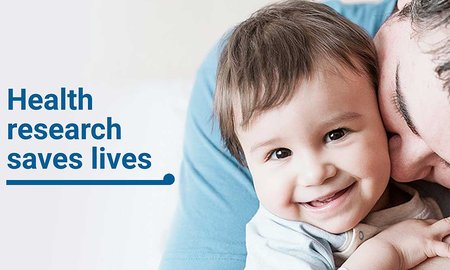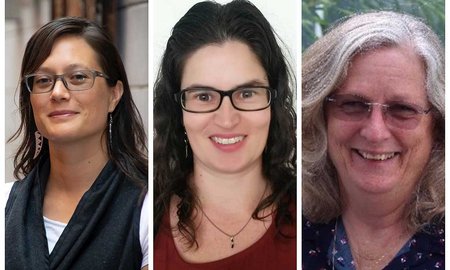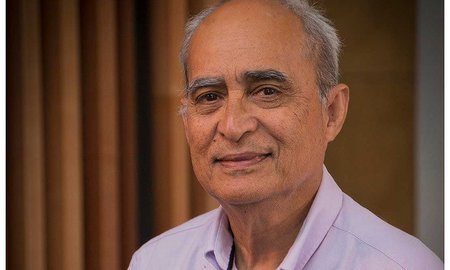
Clockwise from top left: Associate Professor Inga Hunter, Ms Georgina Stokes and Ms Sonya Withers, Associate Professor Darryl Cochrane and Dr Noha Nasef.
Health Delivery Grants support established or prospective researchers and/or research providers to establish health delivery research evidence needs or research opportunities. Massey has been successful in two categories, with three researchers receiving a Research Activation Grant and one receiving a Career Development Award.
Research Activation Grants incentivise readying and planning for research where preliminary resourcing is otherwise unavailable. Career Development Awards are given to a researcher involved in leading or contributing to research or research-related activities connected to health delivery at a policy, practice or systems level. They are designed as an alternative pathway aimed at attracting more people with relevant skills into this discipline.
Research Activation Grants
Associate Professor Darryl Cochrane - A novel non-surgical approach to anterior cruciate ligament injury
Anterior cruciate ligament (ACL) tear is one of the most common and debilitating knee injuries. While surgery is the preferred treatment, the wait lists for surgery continue to grow, which exacerbates the stress and strain on medical facilities and services. Dr Cochrane will explore an alternate non-surgical repair approach that could provide better patient functional outcomes and reduce healthcare costs. The project is based on the self-healing potential and preservation of the biological tissue of the ACL. It is proposed that the non-surgical bracing protocol will enable natural healing of the ACL injury, which could reduce the inequity of accessibility and provision of ACL healthcare services in Aotearoa New Zealand.
Dr Cochrane says the funding provides an exciting opportunity to collaborate with key health specialists to explore this innovative ACL repair approach.
“Our research will challenge the current status quo of ACL treatment, leading to significant advancements in clinical practice. It will represent a significant step forward in enhancing patient care and bridging the gap in healthcare services and address the disparities in accessibility and provision of ACL healthcare services, particularly in Māori knee health.
“Securing this funding has been a collective effort and it would not have been possible without the support and advice from the Research and Enterprise team, particularly John Waldon and Sabine Morton.”
Ms Georgina Stokes and Ms Sonya Withers – Mātauranga Moana: enhancing Bee Healthy Dental Hubs with Māori and Pacific whānau
Mātauranga Moana re-imagines how Māori and Pacific knowledge systems can reshape health sector services for Māori and Pacific peoples. Due to alarmingly low attendance of dental appointments by Māori and Pacific, this project analyses and re-thinks the service design of the Bee Healthy: Wellington Regional Dental Service. By applying Te Ao Māori and Te Ao Pasifika design methodologies, the project seeks to increase whānau engagement with the service through community group relationship building to co-design solutions through a series of wānanga/talanoa. These solutions will utilise place-based design, critical storytelling development, whānau-centred experiences and photovoice methods to ensure all service design outcomes safely and ethically respond to the needs and aspirations for Māori and Pacific whānau.
Ms Stokes and Ms Withers says they’re humbled to be awarded the Activation Grant.
“It means a lot to our communities and our kaupapa to receive this support. Our rōpū is committed to exemplifying the importance of Moana-based creative methodologies in the design of healthcare services in Aotearoa for our Māori and Pacific whānau. This grant will enable us to tautoko and uplift the ideas and critique from key community members, Massey creative arts tauira and Oranga Niho kaimahi to ensure Moana-centric models of design and partnership are upheld throughout this mahi.”
Associate Professor Inga Hunter – Telehealth: providing timely evidence for equitable models of care
Telehealth involves use of everyday digital technologies to deliver healthcare where participants are separated by time and/or distance. If well designed and supportive, telehealth can improve access to healthcare and advance Māori health. Associate Professor Hunter’s research aims to advance Māori health by establishing a modern, robust, successful telehealth design to drive transformative change in an equitable and dynamic way. Her findings will provide Māori communities and health providers the opportunity to co-design strategies and projects to successfully adopt telehealth as a model of care that meets the specific needs of Māori.
Associate Professor Hunter says, “I am delighted to receive this funding as it will provide support to enable me to provide the timely evidence base for telehealth co-design, implementation and evaluation that meets the needs of Māori and other underserved populations such as rural.”
Career Development Award
Dr Noha Nasef – Utility of dietary management for ulcerative colitis
Diet appears to be a promising means to manage inflammatory intestinal disorders such as ulcerative colitis (UC). However, Aotearoa New Zealand still lacks guidance for the use of nutrition therapy in UC. Dr Nasef will develop a summary around UC effective nutrition therapy, which will promote the appropriate use of nutrition therapy for patients with the disorder. She will also generate feedback from healthcare providers and patients around how this therapy could be effectively and equitably implemented in practice and evaluate the success of implementing it in New Zealand healthcare.
Dr Nasef’s research interests are around how our body processes food and how food affects health and wellbeing. “I am very excited for this opportunity to develop and directly contribute to health delivery research in the food and nutrition space that can benefit individuals suffering from gut disorders.”
Related news
Leptospirosis project awarded Health Research Council funding
Professor Jackie Benschop from the School of Veterinary Science has received a Research Project Grant for her project on leptospirosis.

Three Massey academics awarded HRC funding to further research
Māori infant and maternal health, supporting vocational rehabilitation and developing a strangulation screening tool for first responders are three areas of research that have been recognised in the latest round of the Health Research Council of New Zealand Research Activation Grants.

Health researchers secure HRC funding for asthma among Pacific children
A Massey-led study has been awarded $971,541 by the Health Research Council of New Zealand (HRC) to explore the barriers to self-management of asthma in Pacific children.
